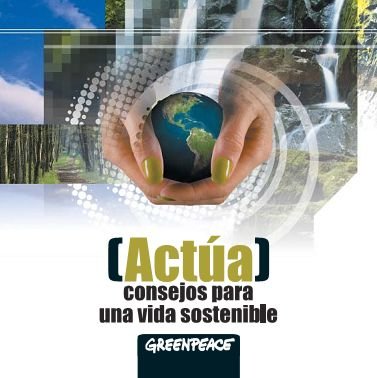By: Mario Briceño
The term “Sustainable Development” was first used in 1987 in the United Nations report “Our Common Future.” This report defines sustainability as “development that meets the needs of the present without compromising those of future generations.” In this sense, the Hopi Indians (like most indigenous societies) have long understood this way of understanding life, since they consider that the interests of the seventh generation must be taken into account, as well as the interests of those who make the decision.
Sustainability therefore implies being aware of the consequences of our actions. Sustainable living is one that is fair in the broadest sense of the word. Every action we take consciously and therefore fairly not only does not harm anything or anyone, but improves the health of the whole. Sustainable behaviour gives ecosystems and society the opportunity to regenerate.
Sustainable living is a necessity today, but it has several obstacles. The main one is ignorance about the consequences of our actions, another obstacle is the exaggerated confidence in scientific and technological progress, which makes us believe that there will always be a solution even for the most serious problems, but this is not the case. Nor does it help to think that the responsibility lies with politicians and large companies. In fact, this attitude allows powerful companies to not make adequate decisions, nor to take sustainability issues into account most of the time. The truth is that each one of us must worry about the sustainability of our lives, because without a doubt the sum of our small individual actions has a greater impact than the large plans put in place by politicians.
To apply some sustainability parameters in our lives we have the seven “Commandments for sustainable life on Earth” (as I call them), which could be:
MAKE THE MOST OF IT: When something is used for more than one purpose, it is better thought out than if it only has one function. Examples of this would be multi-purpose tools, multi-functional furniture such as a sofa bed, an all-terrain bicycle that is useful for exercise as well as for riding in the countryside or city, etc.
SHARING: Sharing things with other people reduces our ecological impact by at least half. If we share them among five people (for example, a book), the effect on the environment decreases five times. If we share music CDs, DVDs, clothes, books, cars, tools, appliances, homes, etc., we will reduce our ecological footprint on the entire planet.
CONSERVING: To conserve, it is often only necessary to realise what is lost by not doing so. In rich countries, a quarter of food spoils because it is not managed properly, either during production and distribution or in the home. Similarly, energy is wasted when a light bulb is left on in an empty room or petrol is wasted when it runs out too quickly.
CARE: When we double the useful life of the objects we own, we halve the expenditure of natural resources.
DIVERSIFY: In any field, diversity implies alternatives in different situations, which means more chances of success. In practice, for a farmer, for example, this means that it is preferable to grow a wide variety of foods than to grow just one.
LOCALIZATION: We should not have to travel long distances every day. If work, school, family and friends are close by, huge amounts of natural resources are saved over a lifetime. Likewise, food, energy, clothing and other consumer goods should be sourced from nearby areas.
RESPECT AND LEARN: We must work by understanding the rhythms of nature and respecting it instead of exploiting and degrading it. Unfortunately, there are still many who think that civilization is built on the domination of nature. In reality, we can learn from nature to apply that knowledge for our own benefit.
![]()

